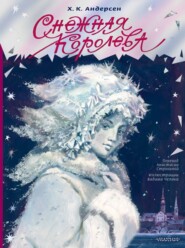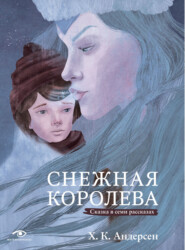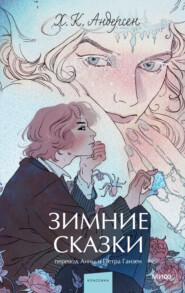По всем вопросам обращайтесь на: info@litportal.ru
(©) 2003-2024.
✖
The Sand-Hills of Jutland
Настройки чтения
Размер шрифта
Высота строк
Поля
and
"There dwelt a king in Leiré."[7 - Leiré, the original residence of the Danish kings, said to have been founded by Skiold, a son of Odin, was, during the heathen ages, a place of note. It contained a large and celebrated temple for offerings, to which people thronged every ninth year, at the period of the great Yule feast, which was held annually in mid-winter, commencing on the 4th of January. In Norway this ancient festival was held in honour of Thor; in Denmark, in honour of Odin. Every ninth year the sacrifices were on a larger scale than usual, consisting then of ninety-nine horses, dogs, and cocks – human beings were also sometimes offered. When Christianity was established in Denmark the seat of royalty was transferred to Roeskilde, and Leiré fell into total insignificance. It is now merely a village in Zealand. —Trans.]
Roeskilde! thou burial-place of kings, in thy pearl we shall see the lonely grave on whose stone is chiselled a lyre and the name – Weyse.
Now come we to Sigersted, near Ringsted. The river is shallow – the yellow corn waves where Hagbarth's boat was moored, not far from Signé's maiden bower. Who does not know the tradition about Hagbarth[8 - Hagbarth, a son of the Norwegian king, Amund, and his three brothers, Hake, Helvin, and Hamund, scoured the seas with a hundred ships, and fell in with the king of Zealand's three sons, Sivald, Alf, and Alger. They attacked each other, and continued their bloody strife until a late hour at night. Next day they all found their ships so disabled that they could not renew the conflict. Thereupon they made friends, and the Norwegian princes or pirates accompanied the Zealanders to the court of their father, King Sigar. Here Hagbarth won the heart of the king's daughter Signé, and they became secretly engaged. Hildigeslev, a handsome German prince, was at that time her suitor; but she refused him, and in revenge he sowed discord between her lover and his brothers and her brothers. Alf and Alger murdered Hagbarth's brothers, Helvin and Hamund, but were killed in their turn by Hagbarth and Hake. After this deed Hagbarth dared not remain at Sigar's court; but he longed so much to be with Signé, that he dressed himself as a woman, and in this disguise he obtained admission to the palace, and contrived to be named one of her attendants. The damsels of her suite were much surprised at the hardness of the new waiting-maid's hands, and at other unfeminine peculiarities which they remarked; but Signé appointed him her especial attendant, and thus partially removed him from their troublesome curiosity. Fancying themselves safe, they relaxed their precautions. Hagbarth was discovered, secured, and carried before the Thing, or judicial assembly. Before he left her he received a promise from Signé that she would not survive him. He was condemned to death; to be hanged on board a galley, in view of Signé's dwelling. To prove her love and faith, he entreated that his mantle might be hung up first, in order, he said, that the sight of it might prepare him for his own death. It was done; and when Signé saw it she fancied her lover was dead, and instantly set fire to her abode. Hagbarth beheld the flames; and no longer doubting the constancy of the princess, he died rejoicing in following her to the other world. —Trans.] and Signelil, and their passionate love – that Hagbarth was hanged in the galley, while Signelil's tower stood in flames?
"Beautiful Sorö, encircled by woods!" thy tranquil, cloistered town peeps forth from among thy moss-covered trees; the keen bright eyes of youth gaze from the academy, over the lake, to the busy highway, where the locomotive's dragon snorts, while it is flying through the wood. Sorö, thou poet's pearl, that hast in thy custody the honoured dust of Holberg! like a majestic white swan by the deep lake stands thy far-famed seat of learning. We fix our eyes on it, and then they wander in search of the simple star-flower in the wooded ground – a small house. Pious hymns are chanted there, that echo over the length and breadth of the land; words are uttered there to which the very rustics listen, and hear of Denmark's bygone ages. As the greenwood and the birds' songs belong to each other, so are associated the names of Sorö and Ingemann.
To Slagelsé! What is the pearl that dazzles us here? The monastery of Antoorskov has vanished, even the last solitary remaining wing, though one old relic still exists – renovated and renovated again – a wooden cross upon the heights above, where, in legendary lore, it is said that Holy Anders, the warrior priest, woke up, borne thither in one night from Jerusalem!
Korsör – there wert thou[9 - Jeus Baggesen. —Trans.] born, who gave us
"Mirth with melancholy mingled,
In stories of 'Knud Sjællandsfar.'"
Thou master of language and of wit! the old decaying ramparts of the deserted fortification are now the last visible mementos of thy childhood's home. When the sun is sinking, their shadows fall upon the spot where stood the house in which thine eyes first opened on the light. From these ramparts, looking towards Sprogös hills, thou sawest, when thou "wert little,"
"The moon behind the island sink;"
and sang it in undying verse, as afterwards thou didst sing the mountains of Switzerland; thou, who didst wander through the vast labyrinth of the world, and found that
"Nowhere do the roses seem so red —
Ah! nowhere else the thorn so small appears,
And nowhere makes the down so soft a bed,
As that where innocence reposed in bygone years!"
Capricious, charming warbler! We will weave a wreath of woodbine. We will cast it into the waves, and they will bear it to Kielerfiord, upon whose coast thine ashes repose. It will bring a greeting from a younger race, a greeting from thy native town, Korsör, where ends the row of pearls.
II
"It is, truly enough, a row of pearls from Copenhagen to Korsör," said my grandmother, who had heard read aloud what we have just been reading. "It is a row of pearls for me, and it was that more than forty years ago," she added. "We had no steam engines then. It took us days to make a journey which you can make now in a few hours. For instance, in 1815, I was then one-and-twenty years old. That is a pleasant age. Even up in the thirties it is also a pleasant age. In my young days it was much rarer than now to go to Copenhagen, the city of all cities, as we thought it. After twenty years' absence from it, my parents determined to visit it once more, and I was to accompany them. The journey had been projected and talked of for years. At length it was positively to be accomplished. I fancied that I was beginning quite a new life, and certainly, in one way, a new life did begin for me.
"After a great deal of packing and preparations we were ready to start. Then what numbers of our neighbours came to bid us good-by! It was a very long journey we had before us. Shortly before mid-day we drove out of Odense in my father's Holstern wagon – a roomy carriage. Our acquaintances bowed to us from the windows of almost every house until we were outside of St. Jörgen's Port. The weather was delightful, the birds were singing, all was pleasure. We forgot that it was a long way and a rough road to Nyborg. We reached that place towards evening. The post did not arrive till midnight, and until it came the packet could not sail. At length we went on board. Before us lay the wide waters, as far as the eye could see, and it was a dead calm. We lay down in our clothes and slept. When I awoke in the morning, and went on deck, nothing could be seen on either side of us, there was such a thick fog. I heard the cocks crowing, and I knew the sun must have risen. Bells were ringing: where could they be? The mist cleared away, and we found we were lying a little way from Nyborg. As the day advanced we had a little wind: it stiffened, and we got on faster. At last we were so fortunate, at a little after eleven o'clock at night, as to reach Korsör. We had taken twenty-two hours to go sixteen miles.
"Glad we were to land; but it was extremely dark, and the lanterns gave very little light. However, all was wonderful to me, who had never been in any other town but Odense.
"'Here Baggesen was born,' said my father, 'and here Birckner lived.'
"It seemed to me that the old town, with its small houses, became at once larger and more important. We were also rejoiced to have the firm earth under us once more; but I could not sleep that night, I was so excited thinking over all I had seen and encountered since I had left home two days before.
"Next morning we rose early. We had before us a bad road, with frightful hills and many valleys, till we reached Slagelsé; and beyond it, on the other side, it was but little better; therefore we were anxious to get to Krebsehuset, that we might early next day go on to Sorö, and visit Möllers Emil, as we called him. He was your grandfather, my worthy husband, the dean. He was then a student at Sorö, and very busy about his second examination.
"Well, we arrived about noon at Krebsehuset. It was a gay little town then, and had the best inn on the road, and the prettiest country round it: you must all admit that it is pretty still. She was a very active landlady, Madame Plambek, and everything in her house was as clean as a new pin. There hung up on her wall a letter from Baggesen to her. It was framed, and had a glass over it; it was a very interesting object to look at, and to me it was quite a curiosity. We then went into Sorö, and found Emil there. You may believe he was very glad to see us, and we were very glad to see him – he was so good and so attentive. We went with him to see the church, with Absolon's grave and Holberg's coffin. We saw the old monkish inscriptions, and we sailed over the lake to Parnasset – the sweetest evening I remember. I recollect well that I thought, if one could write poetry anywhere in the world, it would be at Sorö, amidst those charming, peaceful scenes, where nature reigns in all her beauty. Afterwards we visited by moonlight the 'Philosopher's Walk,' as it was called – the beautiful, lonely path by the lake and the moor that leads towards the highway to Krebsehuset. Emil remained to supper with us, and my father and mother thought he had become very clever and very good-looking. He promised us that he would be in Copenhagen within a few days, and would join us there: it was then Whitsuntide. We were going to stay with his family. These hours at Sorö and Krebsehuset, may they not be deemed the most beautiful pearls of my life?
"The next morning we commenced our journey at a very early hour, for we had a long way to go to reach Roeskilde, and we were anxious to get there in time to see the church. In the evening my father wished to visit an old friend, so we stopped at Roeskilde that night, and the next day we arrived at Copenhagen. It took us three days to go from Korsör to Copenhagen; now the journey is made in three hours. The pearls have not become more valuable – that they could not be – but they are strung together in a new and wonderful manner. I remained three weeks with my parents in Copenhagen, and Emil was with us there for a fortnight. When we returned to Fyen, he accompanied us as far as Korsör. There, before parting, we were betrothed; so you can well believe that I call from Copenhagen to Korsör a row of pearls.
"Afterwards, when Emil and I were married, we often spoke of the journey to Copenhagen, and of undertaking it once more. But then came first your mother, then she had brothers and sisters, and there was a great deal to do; so the journey was put off. And when your grandfather got preferment, and was made dean, all was thankfulness and joy; but we never got to Copenhagen. No, never have I set foot in it again, as often as we thought of it and projected going. Now I am too old, and I could not stand travelling by a railroad; but I am very glad that there are railroads – they are a blessing to many. You can come more speedily to me; and Odense is now not farther from Copenhagen than in my young days it was from Nyborg. You could now go in almost the same space of time to Italy as it took us to travel to Copenhagen. Yes, that is something!
"Nevertheless, I shall stay in one place, and let others travel and come to me if they please. But you should not laugh at me for keeping so quiet; I have a greater journey before me than any by the railroad. When it shall please our Lord, I have to travel up to your grandfather; and when you have finished your appointed time on earth, and enjoyed the blessings bestowed here by the Almighty, then I trust that you will ascend to us; and if we then revert to our earthly days, believe me, children, I shall say then as now, 'From Copenhagen to Korsör is indeed a row of pearls.'"
The Pen and the Inkstand
The following remark was made in a poet's room, as the speaker looked at the inkstand that stood upon his table: —
"It is astonishing all that can come out of that inkstand! What will it produce next? Yes, it is wonderful!"
"So it is!" exclaimed the inkstand. "It is incomprehensible! That is what I always say." It was thus the inkstand addressed itself to the pen, and to everything else that could hear it on the table. "It is really astonishing all that can come from me! It is almost incredible! I positively do not know myself what the next production may be, when a person begins to dip into me. One drop of me serves for half a side of paper; and what may not then appear upon it? I am certainly something extraordinary. From me proceed all the works of the poets. These animated beings, whom people think they recognise – these deep feelings, that gay humour, these charming descriptions of nature – I do not understand them myself, for I know nothing about nature; but still it is all in me. From me have gone forth, and still go forth, these warrior hosts, these lovely maidens, these bold knights on snorting steeds, those droll characters in humbler life. The fact is, however, that I do not know anything about them myself. I assure you they are not my ideas."
"You are right there," replied the pen. "You have few ideas, and do not trouble yourself much with thinking. If you did exert yourself to think, you would perceive that you ought to give something that was not dry. You supply me with the means of committing to paper what I have in me; I write with that. It is the pen that writes. Mankind do not doubt that; and most men have about as much genius for poetry as an old inkstand."
"You have but little experience," said the inkstand. "You have scarcely been a week in use, and you are already half worn out. Do you fancy that you are a poet? You are only a servant; and I have had many of your kind before you came – many of the goose family, and of English manufacture. I know both quill pens and steel pens. I have had a great many in my service, and I shall have many more still, when he, the man who stirs me up, comes and puts down what he takes from me. I should like very much to know what will be the next thing he will take from me."
Late in the evening the poet returned home. He had been at a concert, had heard a celebrated violin player, and was quite enchanted with his wonderful performance. It had been a complete gush of melody that he had drawn from the instrument. Sometimes it seemed like the gentle murmur of a rippling stream, sometimes like the singing of birds, sometimes like the tempest sweeping through the mighty pine forests. He fancied he heard his own heart weep, but in the sweet tones that can be heard in a woman's charming voice. It seemed as if not only the strings of the violin made music, but its bridge, its pegs, and its sounding-board. It was astonishing! The piece had been a most difficult one; but it seemed like play – as if the bow were but wandering capriciously over the strings. Such was the appearance of facility, that every one might have supposed he could do it. The violin seemed to sound of itself, the bow to play of itself. These two seemed to do it all. One forgot the master who guided them, who gave them life and soul. Yes, they forgot the master; but the poet thought of him. He named him, and wrote down his thoughts as follows:
"How foolish it would be of the violin and the bow, were they to be vain of their performance! And yet this is what so often we of the human species are. Poets, artists, those who make discoveries in science, military and naval commanders – we are all proud of ourselves; and yet we are all only the instruments in our Lord's hands. To Him alone be the glory! We have nothing to arrogate to ourselves."
This was what the poet wrote; and he headed it with, "The Master and the Instruments." When the inkstand and the pen were again alone, the latter said, —
"Well, madam, you heard him read aloud what I had written."
"Yes, what I gave you to write," said the inkstand. "It was a hit at you for your conceit. Strange that you cannot see that people make a fool of you! I gave you that hit pretty cleverly. I confess, though, it was rather malicious."
"Ink-holder!" cried the pen.
"Writing-stick!" cried the inkstand.
They both felt assured that they had answered well; and it is a pleasant reflection that one has made a smart reply – one sleeps comfortably after it. And they both went to sleep; but the poet could not sleep. His thoughts welled forth like the tones from the violin, murmuring like a pearly rivulet, rushing like a storm through the forest. He recognised the feelings of his own heart – he perceived the gleam from the everlasting Master.
To Him alone be the glory!
The Child in the Grave
There was sorrow in the house, there was sorrow in the heart; for the youngest child, a little boy of four years of age, the only son, his parents' present joy and future hope, was dead. Two daughters they had, indeed, older than their boy – the eldest was almost old enough to be confirmed – amiable, sweet girls they both were; but the lost child is always the dearest, and he was the youngest, and a son. It was a heavy trial. The sisters sorrowed as young hearts sorrow, and were much afflicted by their parents' grief; the father was weighed down by the affliction; but the mother was quite overwhelmed by the terrible blow. By night and by day had she devoted herself to her sick child, watched by him, lifted him, carried him about, done everything for him herself. She had felt as if he were a part of herself: she could not bring herself to believe that he was dead – that he should be laid in a coffin, and concealed in the grave. God would not take that child from her – O no! And when he was taken, and she could no longer refuse to believe the truth, she exclaimed in her wild grief, —
"God has not ordained this! He has heartless agents here on earth. They do what they list – they hearken not to a mother's prayers!"
She dared in her woe to arraign the Most High; and then came dark thoughts, the thoughts of death – everlasting death – that human beings returned as earth to earth, and then all was over. Amidst thoughts morbid and impious as these were there could be nothing to console her, and she sank into the darkest depth of despair.
In these hours of deepest distress she could not weep. She thought not of the young daughters who were left to her; her husband's tears fell on her brow, but she did not look up at him; her thoughts were with her dead child; her whole heart and soul were wrapped up in recalling every reminiscence of the lost one – every syllable of his infantine prattle.
The day of the funeral came. She had not slept the night before, but towards morning she was overcome by fatigue, and sank for a short time into repose. During that time the coffin was removed into another apartment, and the cover was screwed down with as little noise as possible.
When she awoke she rose, and wished to see her child; then her husband, with tears in his eyes, told her, "We have closed the coffin – it had to be done!"
"When the Almighty is so hard on me," she exclaimed, "why should human beings be kinder?" and she burst into tears.
The coffin was carried to the grave. The inconsolable mother sat with her young daughters; she looked at them, but she did not see them; her thoughts had nothing more to do with home; she gave herself up to wretchedness, and it tossed her about as the sea tosses the ship which has lost its helmsman and its rudder. Thus passed the day of the funeral, and several days followed amidst the same uniform, heavy grief. With tearful eyes and melancholy looks her afflicted family gazed at her. She did not care for what comforted them. What could they say to change the current of her mournful thoughts?

















